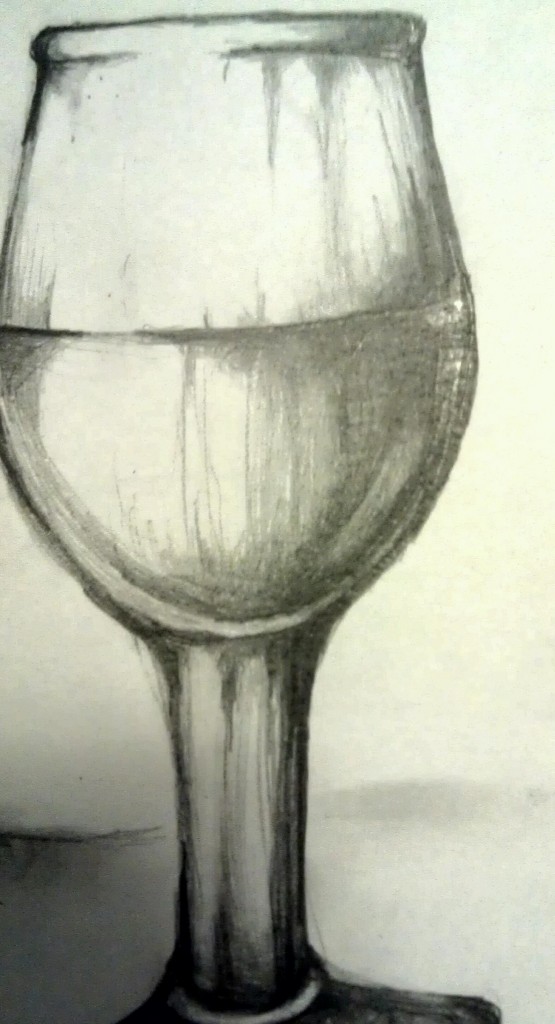“How do I get noticed when there are so many talented people out there screaming for attention? On applications I tend to hype my abilities in the hope they land me a job.”

“You resemble your iPhone.”
“How so?”
“You’re drowning in applications. You flit from one to the other by trying everything. You haven’t learned that nothing impedes like excess.”
“What do you suggest?”
“Take a cue from Buddhism. Pull in your fires. Do one thing excellently. Be known for being the best of the best in at least one area. Be unique.”
“But others may be more unique.”
“They can’t be more or even most unique. The word doesn’t permit grades of perfection. It describes what is absolute in its own class; something of such unsurpassed authority it stands alone. To be unique is to be one of a kind.”
“You’re asking a lot to get noticed.”
“You’re right, but it’s a formula for success. Present yourself as someone of consummate excellence. The characteristics are always the same.”
“What are they?”
“They’re best described by an experience I had auctioning trophy wines collected over five years. Having paid the commission, I walked away with a nifty profit four times my initial investment. On my return from a trip through Sicily I was asked how I could afford it. I answered, ‘My wines took me.’ I was astonished at their appreciation within a decade of their purchase. The subsequent auction of a scarce first edition made me another tidy sum. It was then that I isolated the attributes of what makes something exceptional. They were always together.”
“Don’t stop there, I’m hooked. What were they?”
“In each case I was dealing with something of such recognized value it was considered outstanding. The unrivaled quality was recognized. Of limited quantity, the auctionable items possessed rarity. This proved obvious when I read the auction’s catalogue. Six thousand bottles for global consumption had been produced, and oenologists had rated the wines A or A+. Their reputation had a long history of distinction. I could count on desirability by those with enough savoir-faire to acknowledge their status. The passage of time, resulting in diminished numbers, further enhanced the marketability by increasing value. I advance nothing original when I say these same characteristics apply to the great arts: from painting and sculpture to architecture and literature.”
“Are you proposing I add a great life to your list?”
“Yes. I turn to wine as my primary analogy because when paired with cuisine in a beautiful environment it celebrates friendship. The superior wine’s perfect balance and aromatic complexity remind me of the unique life that seems to happen as a kind of grace. The power, richness and intricate refinement which make a wine ‘long in the mouth’ also makes a human life memorably lived ‘long in the memory.’ The aura of greatness derives not only from age and experience but also from the unique mix of soil, slope and sun. I don’t think it’s far-fetched to view a great human life as a fine vintage. Inspired living has rigors resembling those of winemakers who punish the vine — punir la vigne in the admirable French phrase — for they know that nothing impedes like excess. So they cut back ruthlessly on the stem to limit growth. It results in a paucity of grapes but it guarantees intensity, concentration and longevity.”
“Quality, rarity, desirability and marketability: they seem so obvious once you’ve explained them. Have you had a further experience in which these attributes are prominent? I need another instance to clinch your argument.”
“What comes to mind are the world’s great hotels. Besides the four attributes of greatness, they share being unforgettable. Excess is not what distinguishes them — they are far from the flamboyance of Las Vegas — but a balance of sense and spirit in which each complements the other.
“Brochures picture these hotels in landscapes graced by shrubs in tiered gardens and blessed with views of the sea and mountains. An outdoor pool enjoys the panorama. Each hotel is a small paradise inducing calm. There’s nothing hurried here, no schedule to pressure, no technology to intervene — just an attentive staff that makes you feel at home. These are livable spaces where comforts, taken for granted, become a state of mind.
“They are usually close to a metropolitan area. City and country cooperate to offer the best of both worlds. A week in one of these prelapsarian Edens is all that is needed to integrate mind and body and to prove Oscar Wilde right that the soul is cured by the senses and the senses by the soul.”
“It sounds like a holiday few can afford.”
“It’s eminently affordable if you resist staying in charmless hotels for three weeks. Shorten your stay to one in a great hotel. Take your cue from Buddhism. Pull in your fires. On your deathbed you will not regret having visited Portofino or Porto Ercole, or gazed at the Ionian or Mediterranean seas from the cliffs of Taormina or Ravello. Just as you invest in a unique life, invest in your memories. Together with deeds motivated by kindness, they are all you have to speed you on your way. Furthermore, you’ll more happily move into one of the celestial realms promised by the Qur’an, the Bible, and the Buddhist texts if you’ve first stayed at a great hotel; it eases the passage from one paradise to the next.”
Joseph Roccasalvo is a professional writer. His website is www.josephroccasalvo.com
Joseph Roccasalvo is a professional writer.







Leave a Reply